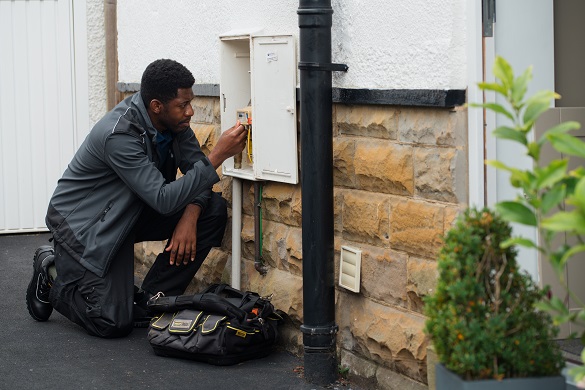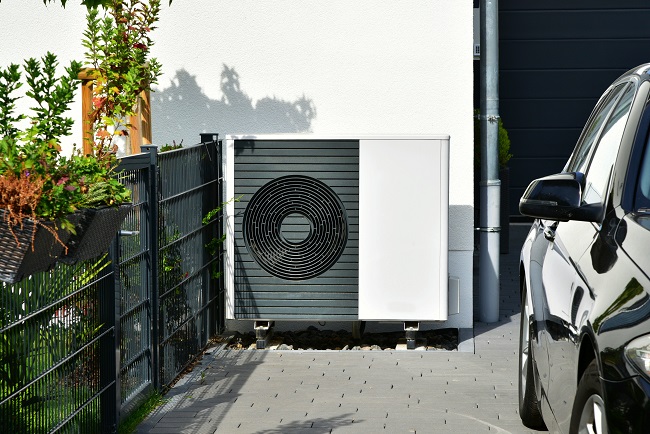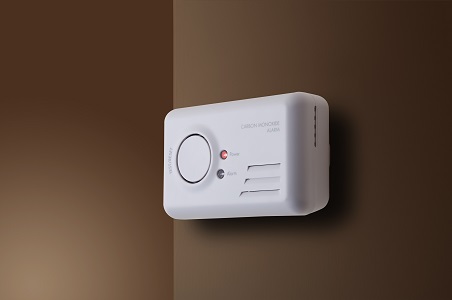Carbon monoxide (CO) alarms are essential for protecting your home against the invisible threat of CO poisoning. They act as an early warning system, detecting harmful gas that can be produced by faulty fuel-burning appliances and boilers.
CO poisoning can lead to severe health issues and in extreme cases, it can be fatal. So being able to detect any leaks quickly can prevent the potentially devastating consequences of prolonged exposure. We’re going to explain here the importance of having a CO alarm installed and what you need to do if yours goes off.
What is carbon monoxide and why is it dangerous?
Carbon monoxide is a colourless, odourless gas that poses a serious threat to health. It’s produced when carbon rich fuels, like coal, wood, oil or gas burn without a sufficient supply of oxygen. Everyday appliances such as boilers, cookers and fires can all be sources of CO if not properly installed or maintained.
CO can be toxic when inhaled. As it enters the bloodstream, it stops your body from effectively absorbing oxygen, resulting in tissue damage and eventually death. Because it’s undetectable by sight or smell, the danger of a leak goes unnoticed – sometimes even after symptoms begin to appear. Symptoms are like those for flu and food poisoning – including persistent headaches, sickness and tiredness.
During the colder months when heating is used more, the risk of CO poisoning increases. Every year, there are around 50 deaths in England and Wales from accidental carbon monoxide poisoning, with around 4,000 people treated annually for symptoms.
The signs of carbon monoxide
Recognising the signs of CO exposure is important so you can act quickly. Look out for the following symptoms:
- Persistent headaches
- Dizziness
- Nausea
- Confusion and breathlessness
If more than one person in your home shows these symptoms, or if they ease off when you’re outside, it could point to CO exposure. Pay attention to yellow or orange flames in gas appliances – rather than a steady blue flame. This is a sign of incomplete combustion and therefore means CO is likely to be present.
Sooty, yellow or brown staining around appliances can also indicate a problem. By installing a CO alarm, you’ll detect any leaks early and get a clear, audible warning for a silent, invisible and odourless threat.
The importance of CO alarms
Carbon monoxide alarms work by continuously monitoring the air for CO levels. When dangerous levels are detected, the alarm emits a loud, distinctive sound to alert occupants. To make sure you have the best protection in place, install CO alarms near bedrooms and on each level of your home. Try to place them at least 15 feet away from fuel-burning appliances so that you avoid false alarms.
Regular maintenance, including testing alarms monthly and replacing batteries every six months will ensure they’re efficient in providing early warnings against potential carbon monoxide poisoning.
Under current UK legislation if you’re a landlord renting out a property, you must:
- Supply and fit carbon monoxide alarms if you have solid fuel fires or stoves in your property
- Make sure a carbon monoxide alarm is equipped in any room used as living accommodation and containing a fixed combustion appliance (excluding gas cookers)
- Make sure carbon monoxide and smoke alarms are repaired or replaced once you’re told they’re faulty
What to do when the alarm sounds
If your CO alarm goes off or if you smell gas, follow these steps:
- Open all windows and doors immediately to let fresh air in
- Where safe to do so, find your gas meter box (it’s usually in the kitchen, hallway or on the outside of your home)
- Open the box and pull the red lever to cut the gas supply to your home
- Leave the property and stay outside
- Call the National Gas emergency number (you’ll find it written in your gas meter box) – 0800 111 999
- Wait for the emergency services to arrive
How to prevent carbon monoxide leaks
You can prevent carbon monoxide leaks through regular maintenance of fuel-burning appliances. To stay safe, you should make sure your home is properly ventilated and install carbon monoxide detectors.
Schedule annual inspections for gas appliances and keep vents clear. Never use generators or grills indoors as these produce high levels of CO. Always remain alert to any possible risks of CO leaks as early detection is crucial for a safe living environment.
Regular maintenance
Maintaining your gas appliances and servicing your boiler annually is vital for your safety. Regular maintenance by Gas Safe engineers will help ensure potential issues like carbon monoxide leaks are detected early.
Regular boiler servicing optimises its performance, extends its lifespan and increases its efficiency. All Domestic & General boiler services are carried out by Gas Safe registered engineers. Book your service today.
Proper installation
Installing or repairing a gas appliance or boiler is a complex process that demands expertise. Always make sure Gas Safe engineers carry out jobs like these, so that you can guarantee your own safety and meet legal regulations.
Untrained people risk installing appliances and boilers incorrectly, leading to hazardous gas and CO leaks. Look after your safety and that of any others sharing your home by only using Gas Safe engineers for gas installation and services.
The Gas Safe Register is the only official gas registration body for gas businesses and engineers in the United Kingdom. By law, all gas businesses and their engineers must be on the Gas Safe Register. A gas engineer can only carry out gas work if they hold a valid and current Gas Safe qualification.
It’s easy to find a Gas Safe registered engineer close to you, for either domestic or commercial use. Just visit the Gas Safe Register website and search using your postcode, town or city.
CO alarm checks
You probably don’t think about carbon monoxide detectors much, at least not until they start beeping at you that their batteries are low. But these detectors are important and can be lifesaving.
Regular testing of CO alarms is important. Press the test button monthly to make sure it’s still functioning properly. You should change the batteries every six months. A helpful reminder is to replace them when you put your clock forward an hour for Daylight Savings Time. Likewise, when you move it back an hour. Try to remember to do this even with mains-powered units that come with backup batteries.
The average lifespan of CO alarms is around 5 to 7 years. Prioritize your safety by replacing your alarm when the time comes.
Our blog is loaded with more related articles

Smarter, wiser homes
A guide to gas safety
Any household that uses gas needs to be aware of the potential dangers that come with gas appliances that are fitted incorrectl...
Read more

Environmental sustainability
7 ways to reduce food waste at home
No-one likes throwing food away. However, The Waste and Resources Action Programme says UK households chuck over 6 million tonn...
Read more

Environmental sustainability
What are heat pumps and how do they work?
Heat pumps are an energy efficient, environmentally friendly alternative to gas boilers. Learn how heat pumps work and whether...
Read more
